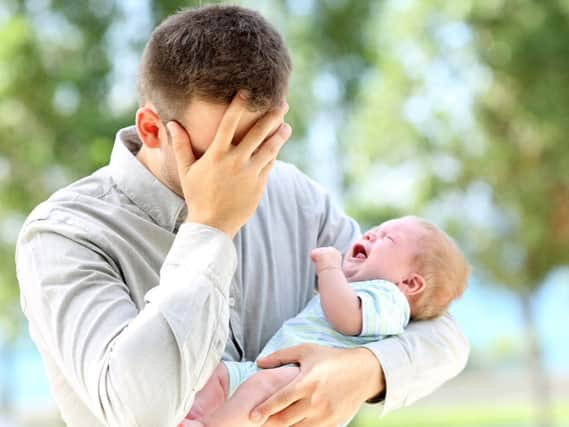Thousands of people in Northamptonshire given lifeline of emotional and mental wellbeing support


Many key Northamptonshire mental health charities have taken the decision, in spite of funding challenges, to adapt their services to the Covid-19 era, to provide a safety net through online and phone support to help many existing and new clients.
This includes addiction services, counselling, family and advocacy support, befriending and social activities to help people managing ongoing mental illness and people dealing with anxiety, depression and stress during lockdown and during the current easing of social distancing restrictions.
Advertisement
Hide AdAdvertisement
Hide AdThanks to local charitable organisations – such as Northampton Mind, Serve Rushden, local HomeStart groups, Family Support Link and Relate Northamptonshire – thousands of people in the county have been provided with a lifeline of emotional and mental wellbeing support.
The coronavirus pandemic has seen an alarming rise in the number of people experiencing depression and its symptoms.
The Office for National Statistics has reported a two-fold increase with one in five people experiencing depression in July 2020 compared with one in 10 in July 2019.
Alongside the decade of cuts and underfunding to mental health services, the impact of the ongoing public health crisis due to Covid-19 has put an increased pressure on this fragile infrastructure as local residents across the UK have been experiencing increased levels of anxiety and depression due to becoming ill with the virus and fear of it, social isolation, loneliness, loss of income and job loss.
Advertisement
Hide AdAdvertisement
Hide AdCritically, the British Medical Journal has reported that the past decade of cuts to NHS mental health support is putting the charitable sector under more pressure due to its own funding crisis and loss of cash as it has been unable to raise funds during Covid-19, which has resulted in the loss of billions of pounds.
Local charities are key referral agencies for social prescribing (the signposting of patients to non-clinical services for care and support).
It states that more investment urgently needs to be put into local mental health charities by clinical commissioning groups to help deal with a looming mental health crisis.
As we emerge from lockdown, we are currently experiencing the first recession in 11 years which will see further loss of jobs and income, placing many under financial stress and future uncertainty.
Advertisement
Hide AdAdvertisement
Hide AdThe London School of Economics (LSE) has evidenced findings to show that this recession will have the biggest impact on the most vulnerable members of our communities.
Professor Bell, of the LSE, stated: “Some individuals will be affected harder than others. We find those most likely to become unemployed are the young, those with a lower level of qualifications, black workers and those on low pay. Similar to previous recessions, the Covid-19 crisis has the potential to scar a large number of individuals, most of them already in a precarious situation.”
With the correct political will, the mental health impact on the population’s wellbeing could be lessened with a reformed universal credit and social security system, an extension of the furlough scheme and proper investment in mental health services.
In the meantime, the national mental health charity Mind has been promoting some key public wellbeing messages to help support friends, family and colleagues who may be struggling with their mental health at this time.
Advertisement
Hide AdAdvertisement
Hide AdThis includes making it known that it’s ok to ask for help; that it’s okay to talk about your mental health; to stay in touch with people to make sure that they are ok; don’t be critical of someone struggling and ask how you can help them.
For further information go to: mind.org.uk/seekinghelp